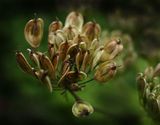Author: Silvia Marinova, PhD student in the Genomic Stability Laboratory at BAS
Gastritis can be an acute or chronic disease of the digestive tract, which is characterized by inflammation of the mucous membrane of the stomach. Since this condition is very common, here you will find information about the causes of its appearance, how to recognize its symptoms, is there a treatment and what diet to follow if we suffer from it.
What causes gastritis
Gastritis develops when the protective layer of your gastric mucosa is disturbed. This allows digestive juices to attack the mucous membrane, leading to its inflammation. It can be acute or chronic. Acute inflammation occurs relatively quickly, and with proper treatment it subsides completely in a short time. Chronic gastritis requires more perseverance and carries more risks.
The root causes of the appearance of gastritis can be varied and numerous. It may be due to:
The most common causative agent of chronic gastritis is the bacterium Helicobacter pylori. It colonizes the stomach of over 50% of the population [ref. 2], although it is not mandatory for all infected to have symptoms. H. pylori is a high risk factor for the development of other serious stomach diseases such as ulcers and cancer, and because of this it is important to be diagnosed on time.
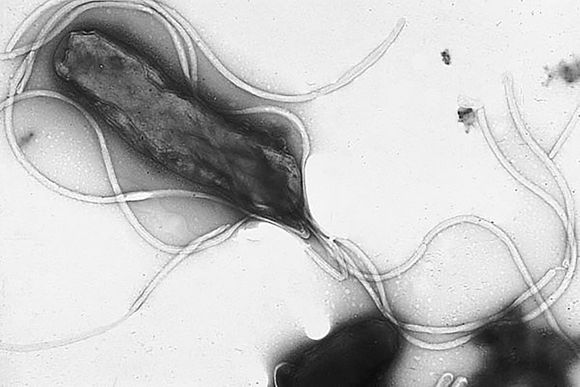
-
Nonsteroidal anti-inflammatory drugs [ref. 3]
This group of medications includes most pain medications such as ibuprofen, aspirin and diclofenac. They have a very aggressive effect on the mucous membrane of the stomach and are necessarily taken after eating. Their systemic use can lead to the development of chronic or acute gastritis.
-
Alcohol
Alcohol can disrupt the mucous membrane, protecting the gastric mucosa, and this can lead to its damage. Abuse of it is more likely to provoke the appearance of acute gastritis.
-
Bile acid reflux
In this condition, part of the bile discharge returns to the stomach, and sometimes into the esophagus. This can lead to inflammation of the gastric mucosa.
-
Autoimmune disease
There is also autoimmune gastritis - the body attacks its own stomach cells and in particular the so-called parietal cells. This condition is associated with vitamin B12 deficiency [ref. 4], as well as the presence ofother autoimmune diseases.
-
Concomitant diseases, stress, viral infections, smoking, irregular eating habits, etc. can also cause gastritis
Symptoms of gastritis
Symptoms of gastritis may be different. In acute conditions, the most common are:
-
heaviness and a feeling of fullness in the stomach
-
burning and pain in the upper abdomen
-
lack of appetite
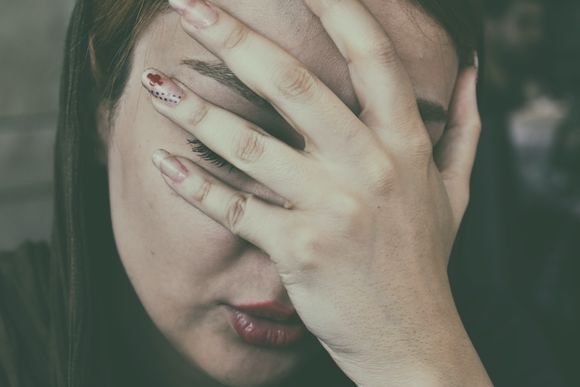
Chronic gastritis, in turn, does not always show symptoms. It often is characterized by alternating phases of no symptoms and phases of acute symptoms such as:
-
bloating
-
coated tongue
-
bleeding (when erosive gastritis occurs and the mucous membrane is severely damaged)
-
rarely nocturnal pains, etc.
It is necessary to consult a doctor if we experience acute symptoms, if they do not pass away more than a week and if they do not succumb to lifestyle changes.
How is gastritis diagnosed
An upper endoscopy is usually performed when gastritis is suspected. The endoscope is a thin tube that ends with a camera. It is inserted through the mouth and carefully inspects the esophagus, stomach and duodenum. A microbiological sample can be taken to be examined for the pathogenic bacteria H. pylori.
If the presence of H. pylori is suspected, a fecal, blood or a breath test may also be done.
What are the possible complications of gastritis
If properly and timely treated, acute gastritis rarely leads to complications. However, in chronic gastritis this happens more often. If not treated, it can lead to serious disorders of the gastric mucosa and ulcer, which in more acute cases can lead to internal bleeding. Also, H.pylori increases the risk of developing oncological diseases [ref. 5].
Other possible complications are [ref. 6]:
Conventional treatment of gastritis
Proper treatment of gastritis depends on the root cause of its occurrence. If it is caused, for example, by the use of pain medication or alcohol, then their cessation should be sufficient to resolve the symptoms.
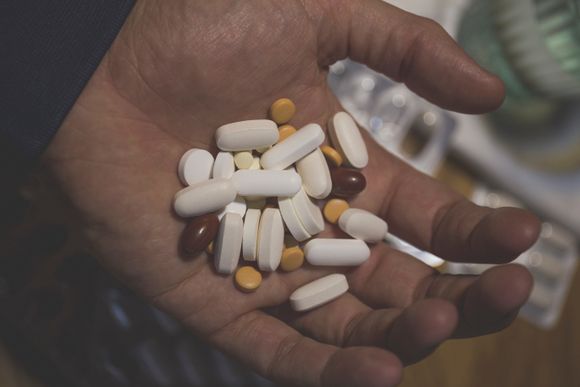
Drugs used for the treatment include:
-
A combination of antibiotics to kill H.pylori, if its presence is proven;
-
Proton pump inhibitors - these are a group of medications that reduce the amount of gastric acid produced and thereby help strengthen the gastric line;
-
Antacids - they neutralize the already produced gastric acid.
What diet to follow when you have gastritis
The diet and lifestyle are of paramount importance for maintaining the good condition of the digestive tract. A main recommendation in observing a diet is to take foods that do not irritate the digestive tract and do not cause the appearance of symptoms.
It is advisable to avoid aggressive agents such as strong spices, hot, preservatives and fatty foods. You need to process food by boiling or baking with minimal or no amount of fat and salt. Frying is highly contraindicated and should be avoided at all costs.

Avoiding certain foods and drinks, as well as taking others, can help to control gastritis. Examples of such are listed below.
Foods and drinks to avoid:
-
Salty foods [ref. 7] - studies have shown that salt increases the risk of developing malignancies. High salt intake disrupts the gastric mucosa, creating favorable conditions for the settlement of Helicobacter pylori.
-
Acidic foods such as tomatoes and some fruits;
-
Fried foods;
-
Chocolate and jam;
-
Carbonated drinks;
-
Alcohol;
-
Coffee;
-
Other foods that lead to worsening of individual symptoms.
Food and drink to take:
-
Iron-rich foods;
-
Foods rich in zinc;
-
Foods rich in fiber such as oatmeal;
-
Low-fat foods such as lean meats and fish;
-
Vegetables such as zucchini, cucumber, pumpkin, ripe bananas;
-
Probiotic drinks such as kefir and kombucha.
It is worth noting that the establishment of the right regime should be done under medical supervision. Although there are general recommendations that we should follow, it also has an individual character.
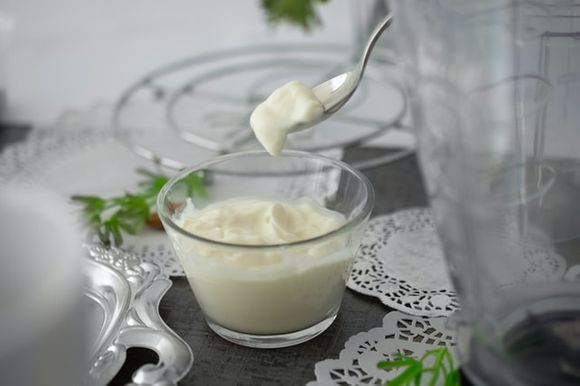
Herbal treatment of gastritis
Some herbs may alleviate the symptoms of gastritis. As with any therapy, and in this case it is very important to talk to your doctor before starting treatment. It should be taken into account that herbs may interact with drugs or other supplements, and some herbs may not be suitable for people with certain medical conditions.
Unless otherwise prescribed, the infusion is usually prepared by pouring 1 tsp herb with a glass of hot water. Leave to steam for 5 to 10 minutes if you have used leaves or flowers and 10 to 20 minutes for roots. Drink 2 to 4 cups a day. You can use tinctures from herbs alone or in combination, as noted.
-
American cranberry (Vaccinium macrocarpon). Some preliminary research suggests that cranberry may inhibit the growth of H. pylori in the stomach. Avoid cranberry extract if you have an allergy to aspirin. Cranberry may increase the risk of bleeding in people who are taking blood thinning medicines such as warfarin or aspirin and others. Cranberries can reduce the rate at which your body processes certain medicines and therefore increase the amount of those medicines in your blood at any given time. Talk to your doctor if you have any concerns.
-
Mastic (Pistacia lentiscus) standardized extract. Chewing mastic gum (mastic resin) is a traditional treatment for peptic ulcers and it suppresses H. pylori in a test tube. More studies are needed to prove it also works in the human body.
-
Standardized licorice extract (Glycyrrhiza glabra) DGL, taken either 1 hour before, or 2 hours after a meal, can help prevent damage to the stomach from non-steroidal anti-inflammatory drugs. Glycyrrhizin is a substance that is found in licorice and causes side effects and drug interactions. DGL is a deglycerided licorice or licorice with glycyrrice removed. Take other medicines at least 1 hour before or after taking DGL.
- Mint (Mentha piperita) may help relieve symptoms of peptic ulcer. Be sure to use the enteric coating form to avoid heartburn. Mint may potentially interact with various medicines and at high doses may be toxic. Talk to your doctor. [ref. 8]
Read more:





